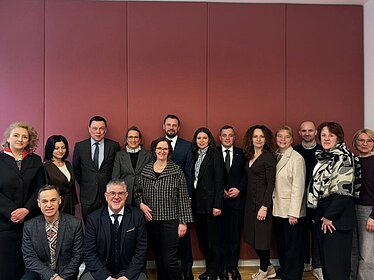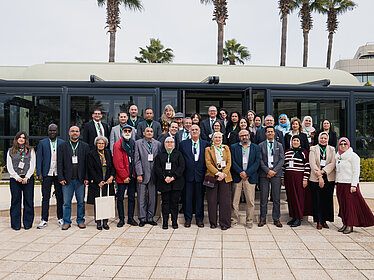
Peru
DVV International has been active in Peru since 2010 and has maintained a country office since 2022.
According to national statistics from that year, more than 22% of the population had no schooling at all or merely primary school qualifications, and 53% had not attended secondary school. Five per cent of the total population is illiterate. Women in rural areas are particularly affected by illiteracy, with a rate of over 19%, a fact which highlights the persistent gender inequality in education.
DVV International’s experience in the country to date emphasises the importance of Adult Learning and Education (ALE) in combating poverty and social inequality, especially with regard to the living situation of women in rural areas. DVV draws on its experience to provide valuable impetus for lobbying and the consolidation of strategic alliances as well as for advocacy work in favour of ALE.
Main focus of work
Through its work to date, DVV International has been able to promote the strengthening of public ALE policy in Peru. This has led to the adoption of the National Education Programme (PEN 2036) and corresponding Regional Education Programmes (PER 2036). The results of CONFINTEA VII were also implemented nationwide as part of the national “Marrakech Action Plan–ALE Peru”. Graduates of Curriculum globALE have come together in national and regional networks, and are committed to the right to education. Through cooperation with public education centres (CEBAs/CETPROs), they have a diverse range of courses on offer and can promote professionalisation of their staff.
Current focal points include:
- Advice on national programmes and legislative procedures for transformative ALE and the establishment of independent state ALE structures;
- Educational work in prisons with a focus on resocialisation, especially for female and juvenile inmates;
- Institutionalisation of Curriculum globALE as a further education programme for adult educators;
- Professionalisation of ALE staff in the areas of management and intercultural sensitivity;
- Strengthening teacher networks at regional and national level and establishing train-the-trainer pools;
- Educational programmes for disadvantaged target groups, with a focus on gender, income-generating measures, human rights and environmental protection, especially for older people, migrants and refugees, women in rural areas and employees of companies who have not completed basic education.
Partners
Direct implementation partners in Peru are the non-governmental organisations CEDEPAS, Tejiendo Sonrisas and Fé y Alegría. The main state partner is the national Ministry of Education. Other partners include the Peruvian Ministry of Justice, the National Penitentiary Institute and the state authority responsible for the social reintegration and socio-educational support of juvenile offenders. Other strategic partners include the National Education Council, the Universidad Enrique Guzmán y Valle, the Amazonas University Madre de Dios, the research centre Grupo de Análisis para el Desarrollo (GRADE) and “Es Hoy”, a movement of business leaders who are committed to inclusive, equitable and sustainable development in Peru.





